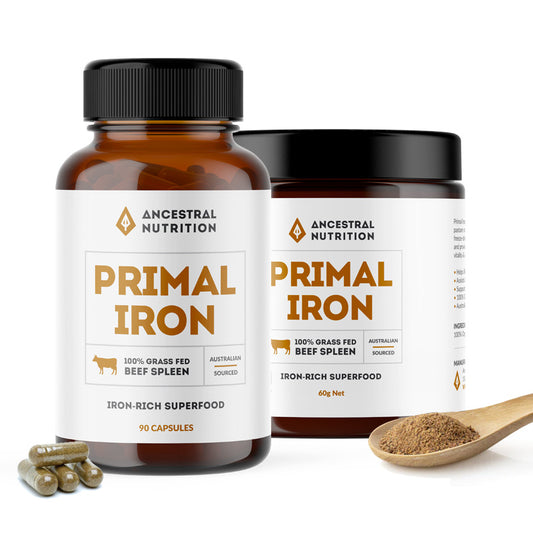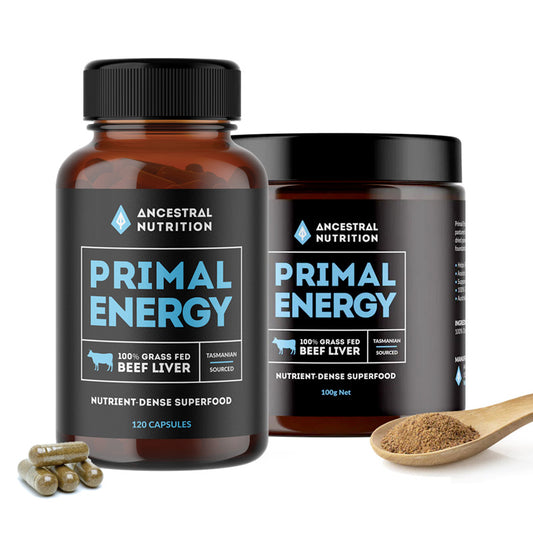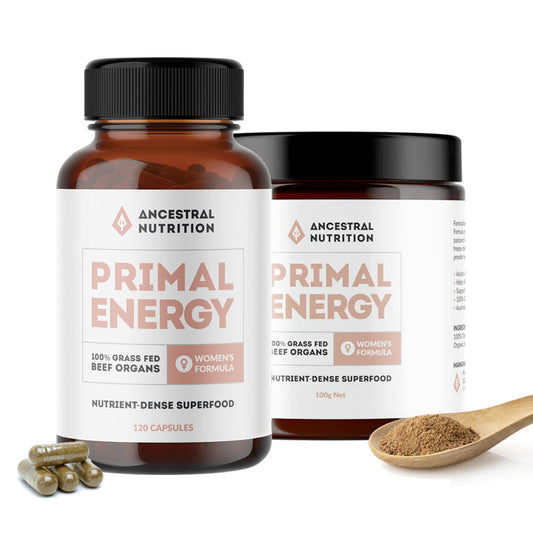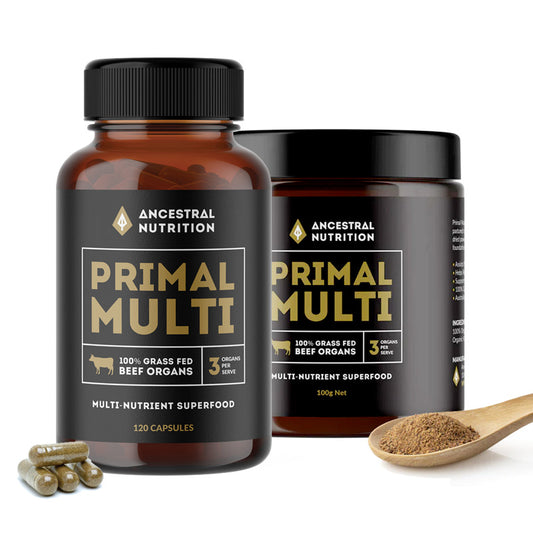Discover Foods Rich in Iron
article by Ancestral Nutrition
Iron is an essential mineral that plays an important role in our health. It supports the production of red blood cells and contributes to energy metabolism, immune function, and the transport of oxygen throughout the body.
In this article, we’ll explore some of the best food sources of iron and how they can support your wellbeing as part of a balanced diet.
Understanding Iron and Its Role in the Body
Iron is a micronutrient required for many biological functions. It contributes to:
- Normal formation of red blood cells and haemoglobin
- Transport of oxygen in the body
- Support of immune system function
- Reduction of tiredness and fatigue (in the context of a healthy diet)
There are two types of dietary iron:
- Heme iron (from animal sources), which is more readily absorbed
- Non-heme iron (from plant sources), which is absorbed less efficiently
Foods Naturally High in Iron
Incorporating a variety of iron-rich foods into your meals is a helpful way to support your daily nutrient needs. You may also wish to include vitamin C-rich foods, such as citrus fruits or capsicum, as vitamin C can enhance the absorption of non-heme iron.
Red Meat
A well-known source of heme iron, red meat like beef and lamb also provides protein, zinc, and B vitamins. A 100g cooked serving of beef may provide around 2.7mg of iron.
Shellfish
Oysters, mussels, and clams are excellent sources of heme iron and are also rich in other minerals like selenium and copper.
Fish
Fatty fish such as tuna, mackerel, and sardines provide moderate amounts of iron, along with beneficial omega-3 fatty acids.
Turkey
Dark meat from turkey contains more iron than white meat and is also a source of B vitamins, zinc, and selenium.
Beef Liver and Organ Meats
Beef liver is one of the most concentrated sources of naturally occurring nutrients — including iron, vitamin A, B12, folate, and copper. Organ meats like liver, heart, and kidney have long been valued in traditional diets for their nutrient density.
For those who enjoy cooking with wholefood ingredients, incorporating beef liver into meals can be a practical way to support general health.
Looking for a Convenient Option?
Not everyone enjoys the taste or preparation of organ meats — and that’s okay. If you’re seeking a food-based supplement to support your nutritional intake, freeze-dried organ blends offer a convenient, capsule-based option.
At Ancestral Nutrition, our Primal Energy Beef Liver supplements are:
- Made from 100% grass-fed Tasmanian cattle
- Freeze-dried to preserve natural nutrients
- Non-defatted to retain fat-soluble vitamins
- Free from hormones, antibiotics, and GMOs
Each capsule delivers wholefood nutrients from liver in a tasteless and shelf-stable format — designed for people who value real food but live busy lives.
Always read the label and follow the directions for use. Supplements should not replace a balanced diet. For personalised advice, consult a qualified healthcare practitioner.




